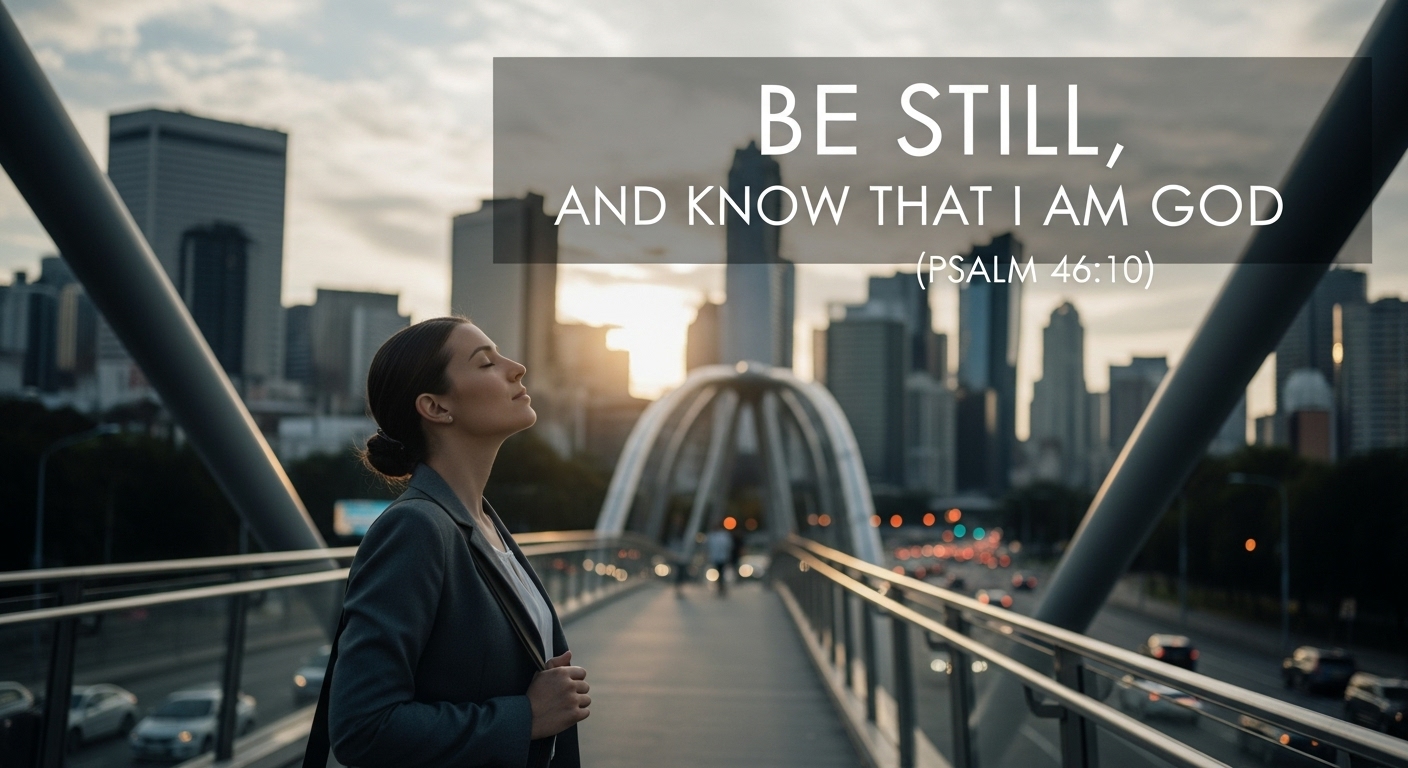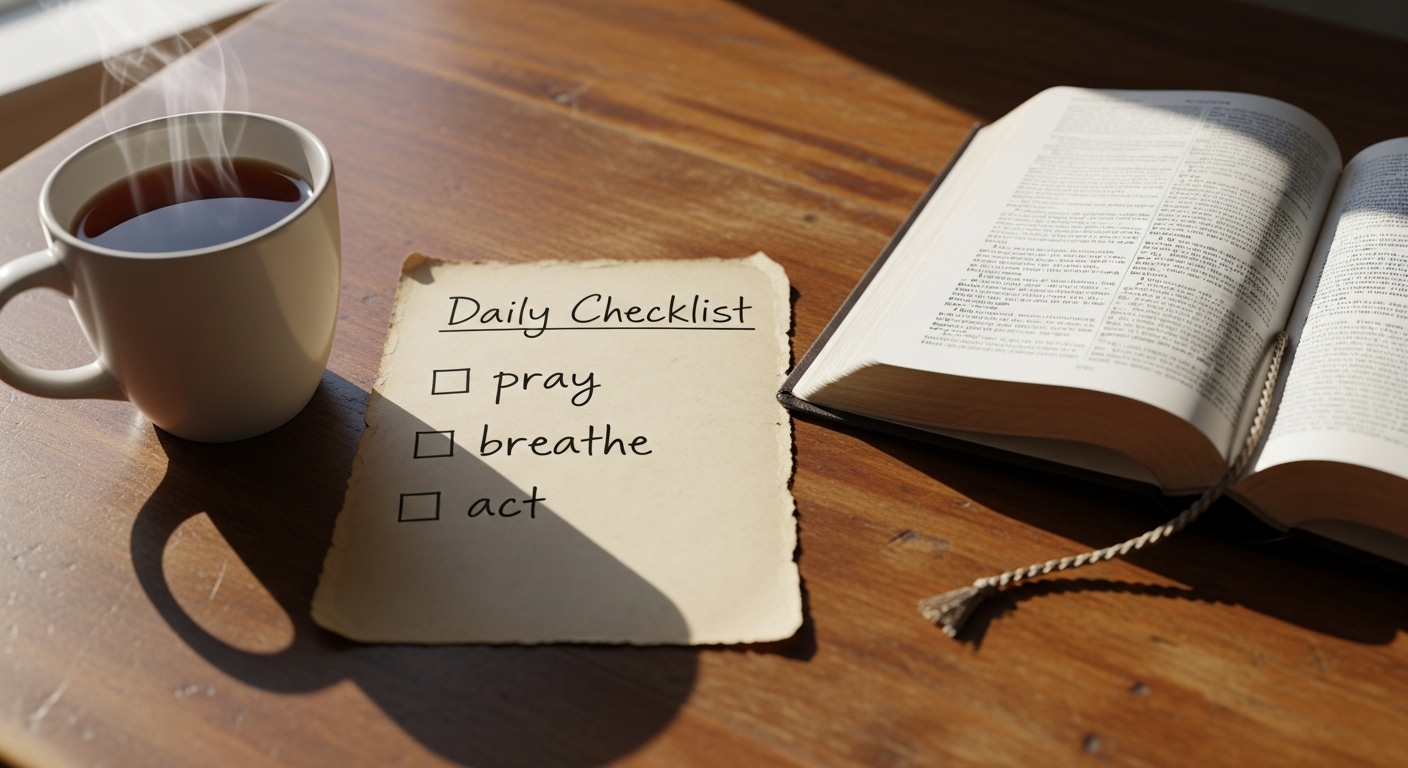How Can I Live Free From Worry And Anxiety?

Introduction
Have you ever woken up with your heart already racing, your to-do list crowding your mind, and a small, persistent voice whispering “what if…?” You’re not alone. Worry and anxiety sneak into the ordinary corners of your life—work, relationships, health—and turn everyday decisions into heavy burdens. But you don’t have to carry that weight alone.
In this article, you’ll explore how faith, Scripture, and practical habits can help you live free from worry and anxiety. You’ll get something you can use right now—a trustworthy Bible truth, clear explanations, and concrete steps you can practice today. This isn’t about quick fixes; it’s about learning to walk with God in a way that brings real, lasting peace into your daily life.
📖 The Bible Foundation
Bible verse: Philippians 4:6–7 (NIV) Philippians 4:6–7
Philippians 4:6-7 (NIV): “Do not be anxious about anything, but in every situation, by prayer and petition, with thanksgiving, present your requests to God. And the peace of God, which transcends all understanding, will guard your hearts and your minds in Christ Jesus.”

This passage is a compassionate instruction from the apostle Paul to believers who were facing stress, persecution, and everyday worries. Paul doesn’t pretend that problems disappear; instead, he gives a practical spiritual response: turn worry into prayer, add thanksgiving, and trust God to provide a peace that protects your heart and mind. That peace isn’t just an emotion—it’s a God-given presence that steadies you amid uncertainty.
🧠 Understanding the Core Truth
The main point is simple: God invites you to trade anxious control for prayerful trust. When you feel anxiety creeping in, you can intentionally bring those concerns to God through prayer and thanksgiving. The promise is not that all difficulties vanish, but that God’s peace will come alongside you and guard your inner life—your thoughts, emotions, and decisions.
Why this matters: worry often convinces you that you must carry the load yourself. But Scripture flips that script and offers an alternative way of living—one where your relationship with God shapes your stress response. You’re not being told to be stoic; you’re being invited to partner with the Lord in leaning on His strength.
🌊 Going Deeper — The Hidden Meaning
Under the surface of Philippians 4:6-7 is a heart-level truth: gratitude rewires anxiety. When Paul pairs prayer with “thanksgiving,” he’s teaching you to reframe your internal conversation. Instead of feeding your fear with worst-case scenarios, you intentionally remember God’s past faithfulness and blessings. That memory creates space for trust.
Think of it like this: imagine worry as a noisy roommate. Prayer is opening the door and letting God speak. Thanksgiving is offering the roommate a chair and listening to a different story—one shaped by grace. A biblical story that echoes this is Jesus calming the storm (Mark 4:35-41). The disciples panicked; Jesus brought peace by His presence and authority. God’s peace doesn’t always remove the storm, but it changes how you experience it. You’ll find the courage to face things differently when you practice this rhythm.
Related Post: Verses to Live By – Psalm 55:22
💡 Modern Connection — Relevance Today

In our fast-paced world, your attention is hijacked by headlines, notifications, and comparisons. That constant stimulation fuels the worry loop: you imagine threats, rehearse failures, and feel drained. Philippians 4:6-7 gives you a counter-cultural practice. Instead of scrolling until your mind races, you pause to pray and thank God.
This applies to family worries, job insecurity, health anxiety, and relational strain. At work, you can choose a short, focused prayer when deadlines loom. At home, you can create a habitual bedtime thanksgiving that replaces rumination. Over time, these small practices reorient your default response—from spiraling to steadying. You’ll still face challenges, but you’ll learn to respond with faith rather than fear.
❤️ Practical Application — Living the Message

You want practical steps you can do today. Try these spiritual and simple habits that help you live free from worry and anxiety:
- Start small with a “three-breath prayer”: breathe deeply three times and pray one sentence to God about the worry on your heart. This anchors your body and redirects your mind.
- Keep a “thanks and requests” journal. Each morning or evening, write one worry and one thing you’re thankful for. Then write a short prayer handing the worry to God. This trains your mind to pair petition with gratitude.
- Set a “worry window”: give yourself 15 minutes to think through practical next steps for a concern. After the window, hand it to God in prayer. This helps you act without obsessing.
- Memorize Philippians 4:6-7 and repeat it when anxiety hits. Scripture recited often becomes a calm relay in your internal dialogue.
- Practice physical rhythms that support spiritual peace—sleep, movement, and healthy eating. Your body matters in how your soul experiences calm.
These steps aren’t magic, but they create a pathway for God’s peace to be felt and practiced in your everyday rhythms. You’ll notice small shifts—less mental replaying of fears, clearer thinking, and a steadier heart.
👉 🌿 Faith Reflection Box
Take a moment to breathe. Ask yourself: What worry have I been carrying alone that I can hand to God this week?
Key Takeaways
- Turn worry into prayer: speak your concerns to God with honesty.
- Pair requests with thanksgiving: gratitude softens anxiety.
- Use small, repeatable practices: consistency beats intensity.
- Trust that God’s peace is an active guard for your heart and mind.
Related Post: Embracing Trust: Insights from 1 Peter 5:7
👉 Q&A
Q1: Does Philippians 4:6-7 mean I should never feel anxious? Answer: Feeling anxious isn’t a sin or a failure—it’s a human response to real threats and unknowns. Philippians 4:6-7 calls you to a spiritual practice, not perfection. It invites you to bring your anxiety to God through prayer and thanksgiving so His peace can meet you. That peace may not instantly remove all fear, but over time it reshapes your inner life. If anxiety becomes overwhelming or persistent, seeking pastoral care, counseling, or medical help alongside prayer is wise. For practical prayers for peace when your mind feels overwhelmed, you might find this helpful: https://biblestorieshub.com/how-to-pray-for-peace-when-your-mind-feels-overwhelmed/. See also Psalm 94:19.
Q2: How do I actually “present my requests to God” without obsessing? Answer: Presenting requests means being honest and concise with God. Try a simple formula: Name the worry, state your request, and express trust. For example, “Lord, I’m worried about the job interview—help me be calm and use my skills; I trust you with the outcome.” Then practice letting go—close your journal, take a breath, and move into the next thing. You aren’t abandoning responsibility; you’re releasing control. Repeating this small ritual builds your muscle for trust. For perspective, see 1 Peter 5:7.
Q3: What if I don’t feel grateful when I’m anxious—how can I give thanks? Answer: Gratitude can begin with tiny, truthful things—your breath, a warm drink, a friend who called. You can also thank God for His presence, even when you don’t feel it strongly. Saying “thank you for being with me” is a faithful act that opens your heart to remember God’s past faithfulness. Over time, this practice reshapes your emotional habits. When Thanksgiving feels forced at first, treat it like exercise—small repetitions bring change. Scripture encourages remembering God’s goodness; see Psalm 103:2.
Q4: Are there spiritual practices that help keep anxiety from returning? Answer: Yes. Regular practices build resilience: daily short prayers, Scripture memorization (Philippians 4:6-7 is a strong start), weekly Sabbath rest, and community—sharing burdens with trusted friends or a small group. Service also helps; when you serve others, worry often shifts perspective. Don’t underestimate rhythms like sleep and Sabbath—they’re spiritual practices too. If anxiety is disruptive, combining spiritual habits with professional support (counseling or medical advice) honors both faith and wisdom. For encouragement on trusting God through uncertainty, read Matthew 6:25-34.
🙏 Conclusion & Reflection
Living free from worry and anxiety is a journey you take one small, faithful step at a time. You aren’t expected to be perfect—only to be present to God and honest with Him. Practice turning worry into prayer, pair requests with thanksgiving, and welcome the peace that God promises. That peace doesn’t always change your circumstances, but it changes how you live inside them.
A short prayer: Lord, when worry rises, help me to bring it to You. Teach me the practice of prayer and thanksgiving. Guard my heart and mind with Your peace, and give me strength to act with courage. Amen.
If this article encouraged you, please clap, leave a comment, and subscribe to my Medium newsletter for updates and more articles on living a faith-filled life.

Explore More
For further reading and encouragement, check out these posts:
👉 7 Bible Verses About Faith in Hard Times
👉 Job’s Faith: What We Can Learn From His Trials
👉 How To Trust God When Everything Falls Apart
👉 Why God Allows Suffering – A Biblical Perspective
👉 Faith Over Fear: How To Stand Strong In Uncertain Seasons
👉 How To Encourage Someone Struggling With Their Faith
👉 5 Prayers for Strength When You’re Feeling Weak

📘 Jesus and the Woman Caught in Adultery – Grace and Mercy Over Judgement
A powerful retelling of John 8:1-11. This book brings to life the depth of forgiveness, mercy, and God’s unwavering love.
👉 Check it now on Amazon 🛒💥
🔥 “Every great message deserves a home online.” 🌍💬🏡
Don’t let your calling stay hidden. Start a Christian blog or website using Hostinger — with 99.9% uptime, a free domain, and SSL, your voice can shine for God’s glory anytime, anywhere.
💥 Begin today. 🛒 Try it RISK-FREE! ✅
✝️ “Your body is God’s temple — care for it with purpose.” 💪💖🏛️
Renew your energy and restore balance naturally. Mitolyn helps support a healthy metabolism, giving you the vitality to live out God’s calling with strength and confidence.
🔥 Unlock Your Metabolic Power! ⚡Burn More Calories & Feel Great With Mitolyn. 💪
👉 Start Today. 🚀 Check Price Now. 🛒💰
💰 As a ClickBank & Amazon Affiliate, I earn from qualifying purchases.
📖 Acknowledgment: All Bible verses referenced in this article were accessed via Bible Gateway (or Bible Hub).
🚀 Want to explore more? 👉 Dive into our new post on Why Jesus? and experience the 🔥 life-changing truth of the Gospel!








